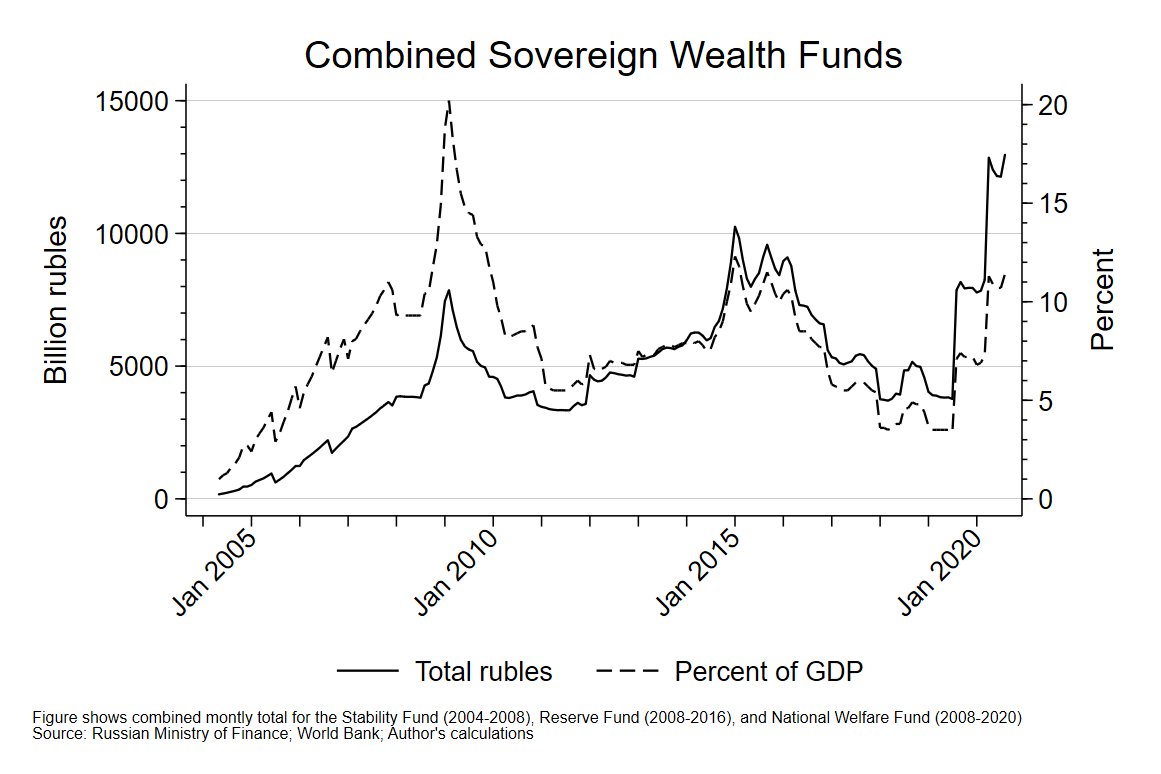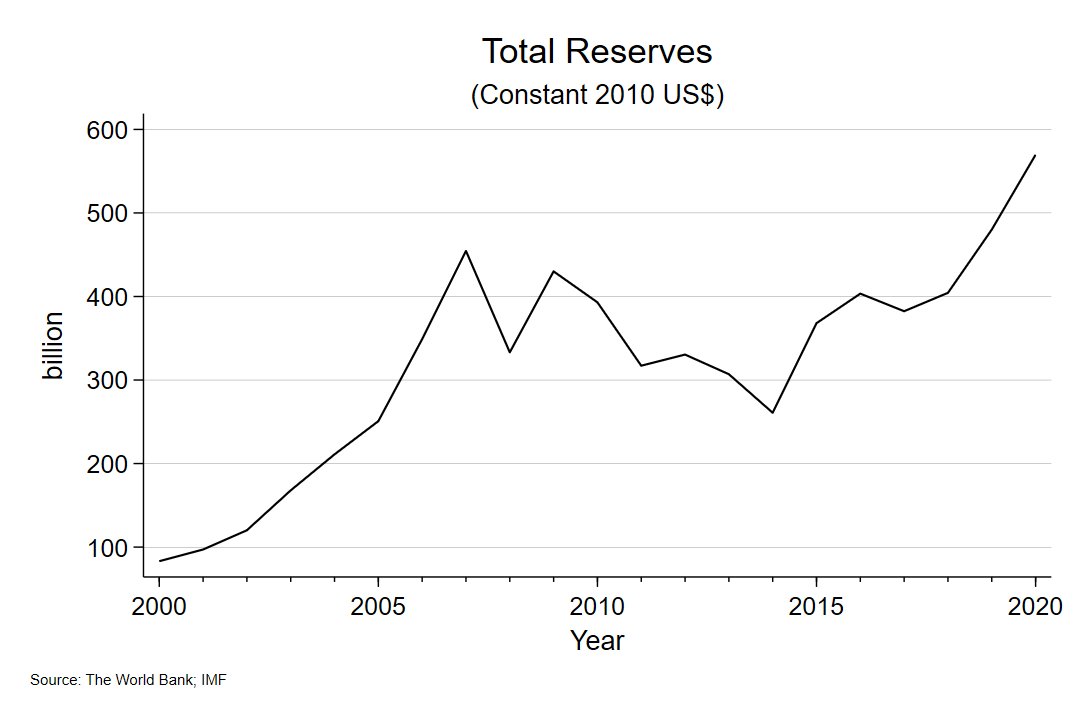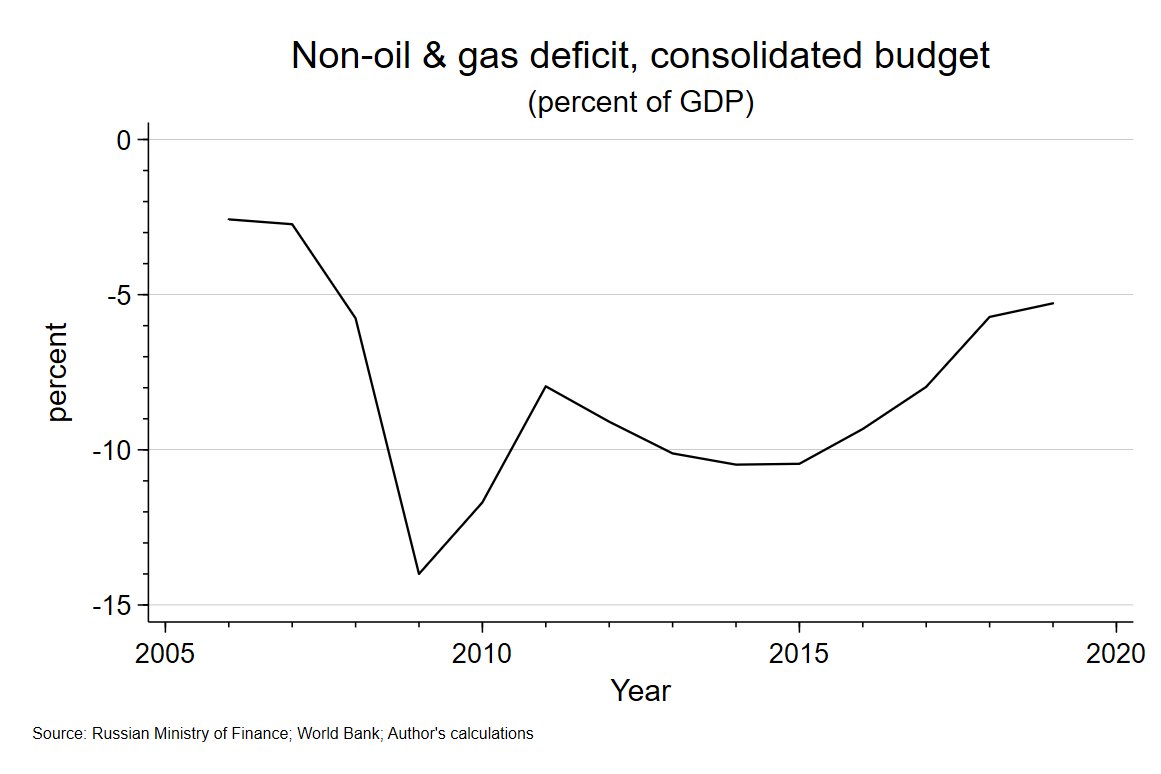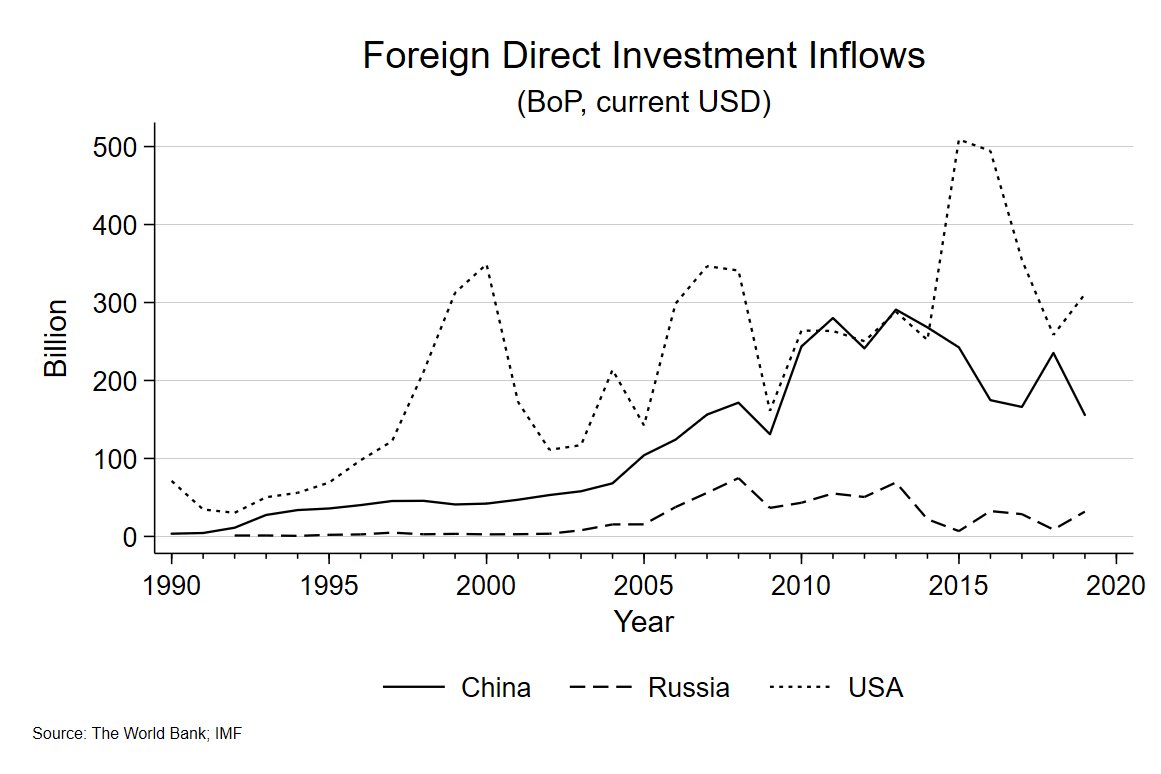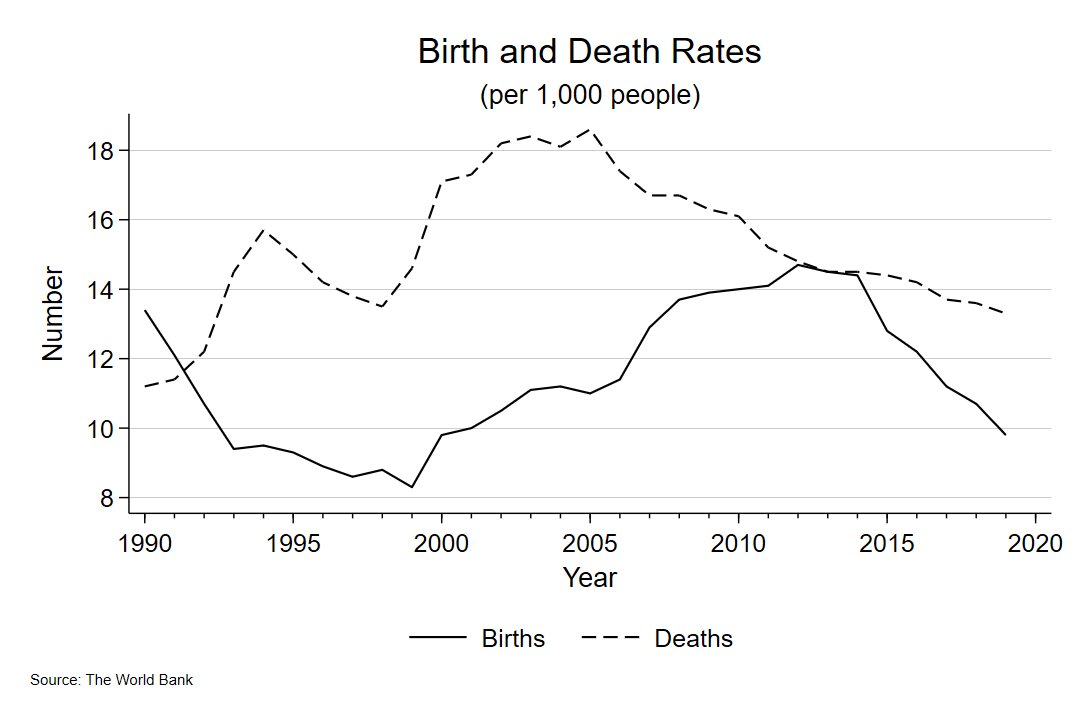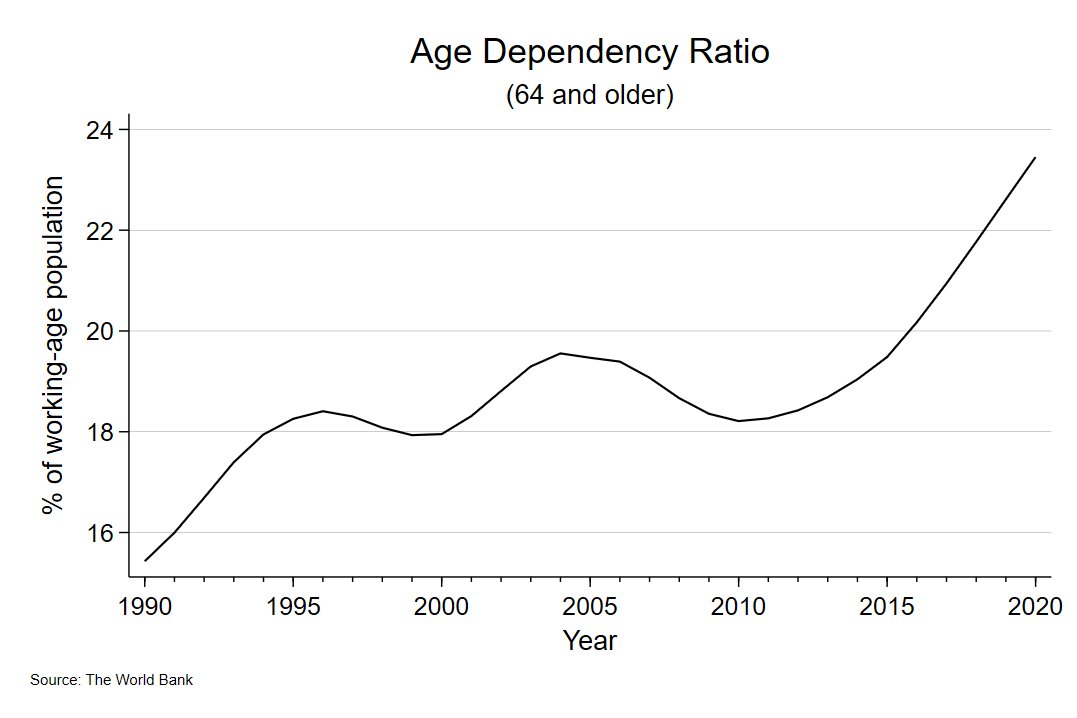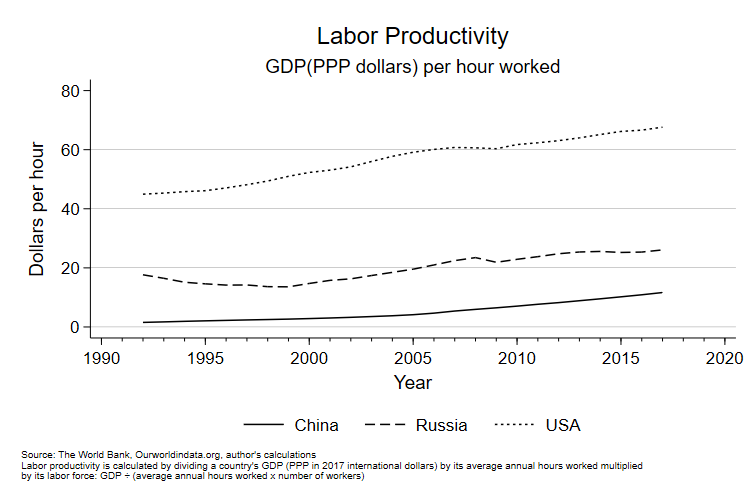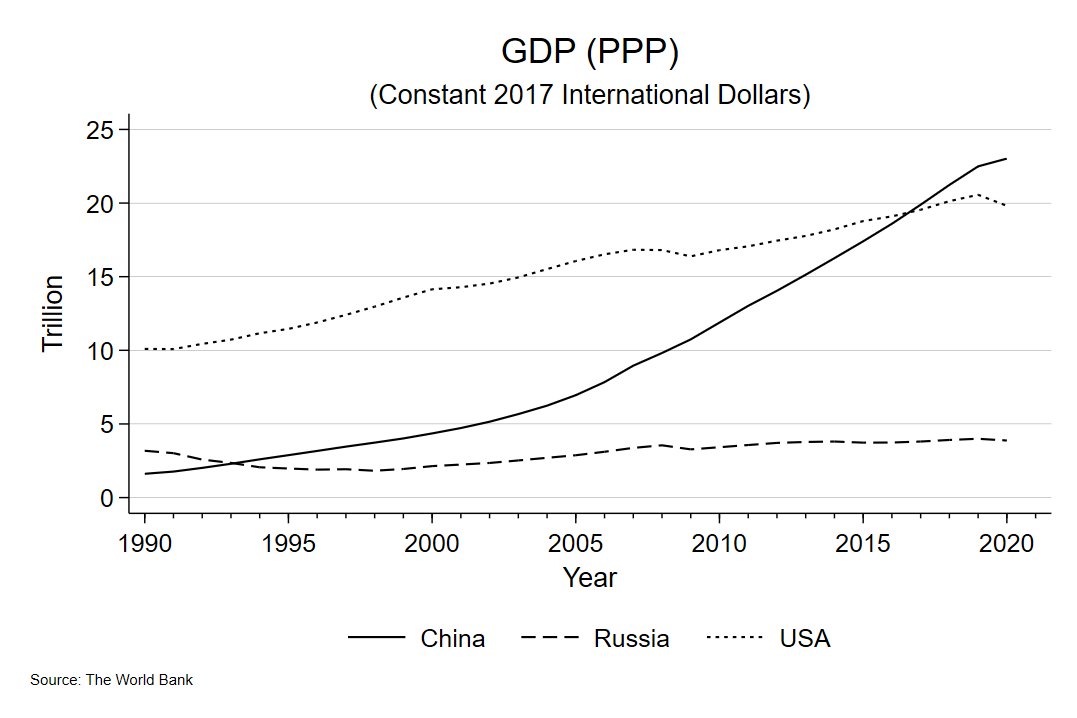Thread
How long can Russia endure Western sanctions? A THREAD based on my research on the political economy of Russian grand strategy. Data from @WorldBank, @IMFNews and Russian Ministry of Finance. 1/
Lots of people are arguing that Russia's accumulated financial reserves will allow it to weather sanctions comfortably for a long time. This is not true, and history (and data) show us why. 2/
Here's a chart of Russia's combined sovereign wealth funds. This is where Moscow saves money when energy prices are high and when they need to sterilize currency to avoid inflation. And this is what they spend from during recessions and budget shortfalls when oil prices drop. 3/
Notice that Russia has had to spend down its reserves pretty heavily after the 2009-10 global financial crisis and after the recession induced by Russia's 2014 invasion of Ukraine and subsequent sanctions. KEY POINT: this is not a bottomless piggy bank. 4/
But the size of Russia's reserve funds isn't just about how much they're spending. It's also about the price of oil. Lower oil prices since 2014 have meant less surplus revenue to save. In the months/years ahead, Russia's reserves will depend heavily on what oil prices do. 5/
In normal times (what are those?) the government is supposed to use these funds to finance the federal budget deficit (ie, planned spending) and long-term economic development projects. But they usually suspend these rules during crises and use them for off-budget stimulus 6/
After the 2014 invasion, Putin used these funds to prop up many of the individuals and entities (state-owned banks, etc) that were targeted by Western sanctions. This wasn't just about economic stimulus, it was about political support from & for his cronies. 7/
That's because Putin's corrupt control over directing the flow of Russia's resource wealth isn't a feature of the political system, it IS the political system. Recommend Fiona Hill and Clifford Gaddy's @BrookingsPress book on this 8/ www.brookings.edu/book/mr-putin-new-and-expanded/
It's not so much that Putin "buys" loyalty from his cronies with resource wealth. Its that he threatens to cut them off if they do not do as he directs. Blackmail is a better way to describe the relationship. See Karen Dawisha's excellent book 9/ www.simonandschuster.com/books/Putins-Kleptocracy/Karen-Dawisha/9781476795195
This chart shows the inflation-adjusted Russia's total reserves (monetary gold, special drawing rights, IMF reserves, and foreign exchange reserves held by central bank). Though they've risen in recent years, they also decline during recessions 10/
Moscow will need to spend heavily from these monetary reserves in order to prop up a ruble in freefall (as happened in 2014). Or, they'll have to give up and let the ruble slide. Ordinary Russians will be able to buy much less with a weak ruble - this could hurt pretty badly. 11/
We also know that Russia's federal budget is dependent on oil/gas revenue. This chart shows the budget deficit they would face if there were no energy money coming in. Economists say -4% or less is sustainable long-term. Russia hasn't hit that mark in 15 years. 12/
That dependency will rise as they spend oil money from the reserves to cover what will be an expanding budget deficit due to likely recession and increased military expenditures. This dependence on energy revenue is another reason Moscow will be sensitive to oil price trends. 13/
There's a lot of other long-run factors dragging on the Russian economy that will limit its ability to sustain long-term severe sanctions. Let's start with investment. The world already doesn't really want to invest its money in Russia. That won't change anytime soon. 14/
In fact, most development investment in Russia comes from the state: the so-called "National Projects." Already on ice since COVID, these projects will see what little funding remains redirected toward Russia's war effort. 15/
Remember, all the money that Moscow is burning up in its war on Ukraine is money that will never go to things that could actually boost Russia's economic growth and development. Sanctions will also make it hard for private firms in Russia to secure Western funding too. 16/
Russia's demographic trends aren't encouraging either. Population continues to decline as deaths outnumber births for the last 30 years. Immigration isn't enough to offset these trends. 17/
Russia's population is aging and in comparatively poorer health compared to other European countries AND countries with comparable GDP/pc. This chart shows the ratio of people over 64 as a proportion of the working-age population. Bottom line: more pensioners per worker. 18/
This means that Russia will have to face increasing costs for pensions, elderly health care, etc. in years to come while relying on fewer current workers to fund social welfare. Or, they can cut benefits and face a bunch of angry babushki in the streets. Terrifying thought. 19/
Sure, declining labor force can be offset by rising output, but Russia's labor productivity has barely budged upwards in the last 30 years. No reason to think govt. will invest in things that would boost productivity now that they're fighting a war/sanctions. 21/
So what does this all mean? It means that Russia has the reserves to withstand sanctions/recession for a while (a few years at best) but not forever. They do not have an infinite piggy bank, and many of the things they will have to spend on will burn up cash fast. 22/
It also means that Russia's economy was facing headwinds already due to underinvestment, declining labor force, overdependence on oil revenue, and a corrupt political-economic system run for/by Putin and his cronies, who have NO INCENTIVE to reform it. 23/
Russia's long-term strategic dilemma is evident in this graph. Mr. Putin, once you install your puppet regime in Kyiv, what's your plan for developing an economy that will allow you to compete as a truly "great power" in the multipolar order you think you're building? 24/
But now we can also see his long-run strategy. Putin knows he can't compete by lifting Russia up to the level of his "peer" great powers. So he will do everything he can to tear down his top geopolitical rival - the United States - and its partners and allies globally. 25/END
Mentions
See All
Noah Smith @NoahSmith
·
Feb 25, 2022
..this is a thread worth reading!
